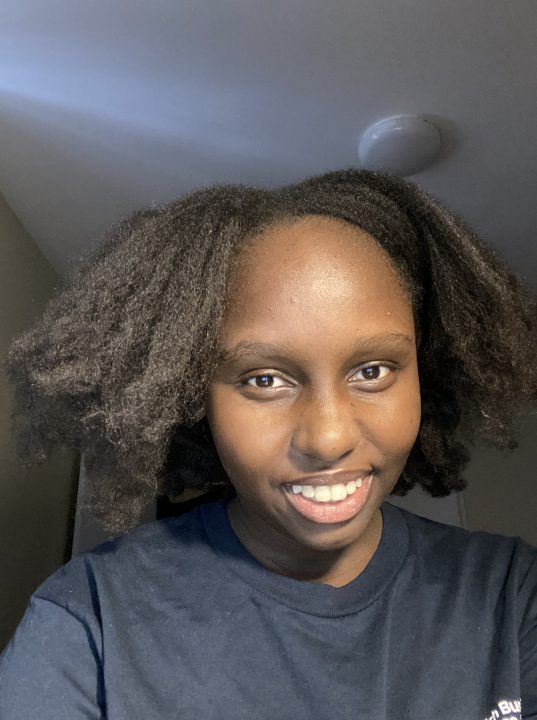Sharleen Chebet
BSc student, Math and Computer Science
CDI Summer Intern, 2023

About Sharleen
Sharleen Chebet was finishing up her first year in Math and Computer Science at Carleton University when she applied to the Cross-Disciplinary Internship opportunity with the McDonald Institute. She is interested in machine learning applications and had previous Python programming experience and geospatial programming. Sharleen knew there was great importance in data in research, so she wanted to know more how research is conducted. Sharleen mentioned that she was hesitant to apply for the internship, because she thought she would never be accepted as an undergraduate student. But, Sharleen put herself out there and reached out to Dr. Matthew Leybourne to write the project. She later said she was glad that she “didn’t miss out on the internship.”
Project: Laser Ablation ICP-MS Analysis of Olivine and Galina as Potential Paleo Detectors
For this project, the team hypothesized that minerals have the potential to act as paleo detectors for Dark Matter searches. They used laser ablation ICP-MS analysis of Olivine and Galena for the project. They wanted to specifically focus on Olivine and Galena because the team also wanted to consider aspects of climate change. Olivine is a waste product in diamond exploitation, and galena is crucial in ore deposit exploitation. The data produced by this technique are inherently complex and required extensive processing and subjective expert interpretation to produce useful compositional data. ICP-MS data collection and sophisticated software are required to control the mass spectrometer and perform calculations on the data collected. Sharleen was involved on how to interpret and present laser ablation data for publication and how to write up these results from an astroparticle physics and geological science perspectives. One of the growth areas for the Queen’s Facility Isotope Research (QFIR) laboratory over the last couple of years is in increasing the automation of data presentation and data reduction. Sharleen brought new skills from her undergraduate training to the QFIR team.
For her Knowledge Mobilization component of the internship, Sharleen produced an article on Medium.
I have never taken a physics course, so my perception of physics was limited. I thought of physics was too complex for me. During the internship I saw one of the most complex forms of physics (astroparticle physics). Yet, I was able to understand concepts and do the research with my own skills. After the internship, I am not intimidated by the subject and would take physics as an elective in the future.
Sharleen's Experience
"I wanted to get research experience. Research had always seemed so out of touch as an incoming first year student. I thought I had to be a graduate student to participate in research."
I had a wonderful summer. For the internship, I came to Kingston for the data collection and LA-ICP-MS analysis phases. It was my first time in Kingston and Queen’s University. I spent my time at the Miller Museum working with the museum’s curator going through an extensive collection of minerals and choosing what I would used based on my supervisors’ instructions. Later on, I met with Dr.Hom Nath Gharti, and he would advise me on issues with machine learning. I got to see the collaboration it takes to make a project happen! Besides learning practical skills like data analysis, I learnt the importance of collaboration in academia.
Weekly meetings with Dr Leybourne were a favourite part of my internship.We meet every Wednesday to talk about progress of the project. These meetings kept me accountable. I got to work in ambiguity and be creative while still having support and guidance.
